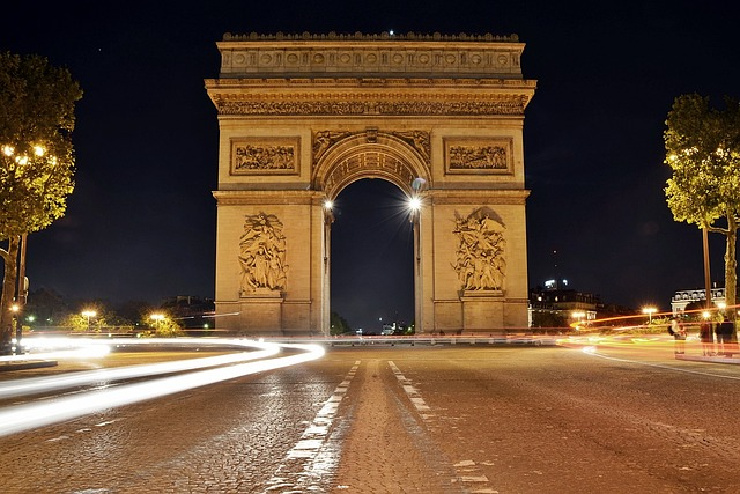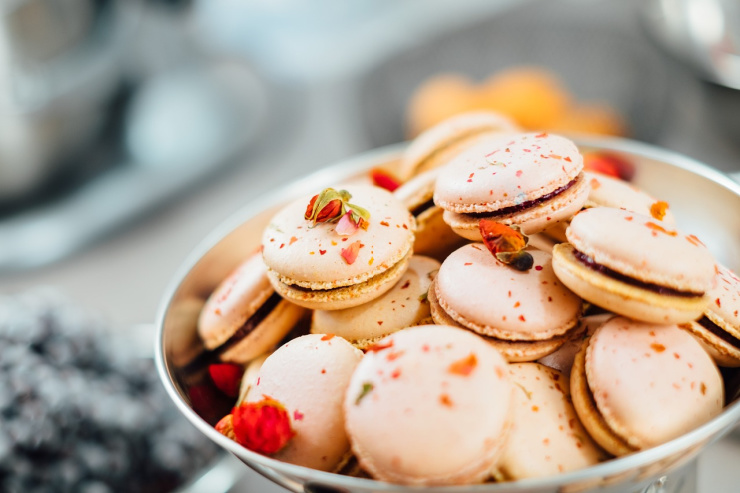Whether you're a first-time visitor or have been to the city before, this guide will help you know what to expect and make the most of your trip.
What to Expect on Your Tour of Paris
The Language Barrier
Visiting Paris can be an intimidating experience if you don’t speak the language. The majority of people in Paris speak French, so it can be a challenge for visitors to understand what is being said. Fortunately, there are a few resources that can help with this. For example, many museums, restaurants, and tourist sites offer multilingual services and provide information in multiple languages. It is also possible to find tours in Paris with English-speaking guides and tour operators who can provide a more personalised experience. Additionally, basic French courses can be taken to help better understand the language. Overall, even though the language barrier can be daunting, there are plenty of ways to get around it when visiting Paris.
The Cost of Living
Paris is known for its expensive lifestyle, but the city also offers a wide variety of affordable activities. Depending on the type of traveller you are, the cost of living in Paris can range from very cheap to very expensive. Accommodations in Paris vary in price depending on the area and the quality of service. Hostels and budget hotels are available throughout the city and offer affordable alternatives to more expensive hotel accommodations.
For those looking to splurge, there are plenty of luxurious hotels with stunning views of the city. Transportation in Paris is relatively inexpensive. Public transportation tickets are available for single rides or longer-term passes at discounted rates. There are also bike rental services throughout the city if you prefer to explore by bike. Taxis are an option, but these tend to be pricier than public transportation.
The Weather
When it comes to the weather in Paris, you can expect warm summers and cold winters. The temperature during the summer typically ranges from 16 to 25 degrees Celsius (61 to 77 Fahrenheit). In winter, temperatures usually range from 2 to 8 degrees Celsius (36 to 46 Fahrenheit). Rainfall is relatively common throughout the year, with April being the wettest month on average. Snow is rare but does occur in some years. It's important to dress appropriately for the weather when visiting Paris – light clothing in the summer and something heavier in the winter.
The Food
What to Expect on Your Tour of Paris
The Language Barrier
Visiting Paris can be an intimidating experience if you don’t speak the language. The majority of people in Paris speak French, so it can be a challenge for visitors to understand what is being said. Fortunately, there are a few resources that can help with this. For example, many museums, restaurants, and tourist sites offer multilingual services and provide information in multiple languages. It is also possible to find tours in Paris with English-speaking guides and tour operators who can provide a more personalised experience. Additionally, basic French courses can be taken to help better understand the language. Overall, even though the language barrier can be daunting, there are plenty of ways to get around it when visiting Paris.
The Cost of Living
Paris is known for its expensive lifestyle, but the city also offers a wide variety of affordable activities. Depending on the type of traveller you are, the cost of living in Paris can range from very cheap to very expensive. Accommodations in Paris vary in price depending on the area and the quality of service. Hostels and budget hotels are available throughout the city and offer affordable alternatives to more expensive hotel accommodations.
For those looking to splurge, there are plenty of luxurious hotels with stunning views of the city. Transportation in Paris is relatively inexpensive. Public transportation tickets are available for single rides or longer-term passes at discounted rates. There are also bike rental services throughout the city if you prefer to explore by bike. Taxis are an option, but these tend to be pricier than public transportation.
The Weather
When it comes to the weather in Paris, you can expect warm summers and cold winters. The temperature during the summer typically ranges from 16 to 25 degrees Celsius (61 to 77 Fahrenheit). In winter, temperatures usually range from 2 to 8 degrees Celsius (36 to 46 Fahrenheit). Rainfall is relatively common throughout the year, with April being the wettest month on average. Snow is rare but does occur in some years. It's important to dress appropriately for the weather when visiting Paris – light clothing in the summer and something heavier in the winter.
The Food
When it comes to food, Paris has something to offer everyone. Whether you’re a foodie or just looking for a casual meal, you can find something to suit your taste buds in Paris.
Some of the traditional French dishes you should try include steak frites, cassoulet, boeuf bourguignon, and tarte tatin. But if you’re not feeling particularly adventurous, there are plenty of other options. From bakeries serving freshly baked bread and pastries, to cosy cafes serving crepes and coffee, there are plenty of options for all kinds of appetites. The city is also known for its wonderful selection of cheeses and wines, which is what often makes it so romantic, which can be enjoyed at many restaurants throughout the city.
The Architecture
Paris is a city of incredible beauty and stunning architecture. From the iconic Eiffel Tower to the stunning cathedrals, Paris offers visitors an array of architectural wonders to explore.
The Architecture
Paris is a city of incredible beauty and stunning architecture. From the iconic Eiffel Tower to the stunning cathedrals, Paris offers visitors an array of architectural wonders to explore.
The History

Paris is steeped in history, with a timeline stretching back over 2,000 years. Many of the city’s iconic landmarks have been around for hundreds of years, and their stories are an integral part of the fabric of Parisian life.
On your tour of Paris, you will have the chance to learn more about the city’s history and discover how it has shaped the city today. The earliest settlement in what is now Paris dates back to the third century BCE, when the Parisii tribe settled on the left bank of the River Seine. During the Middle Ages, the city became known as Lutetia and was part of the Kingdom of France. In the 12th century, Philip II built the Louvre Palace, which still stands today as a symbol of Parisian grandeur. The 16th century marked a period of unprecedented growth for Paris. Under King Henry IV, the Pont Neuf bridge was constructed and the Place des Vosges square was opened. During this time, Paris also began to establish itself as a major cultural centre in Europe, hosting writers and artists from around the world.
In the 19th century, Paris underwent another period of growth and development, which saw the construction of many of the city’s iconic landmarks such as the Eiffel Tower and the Arc de Triomphe. This period was also marked by several devastating wars and revolutions, most notably the Franco-Prussian War and the Paris Commune.
*Collaborative post








No comments